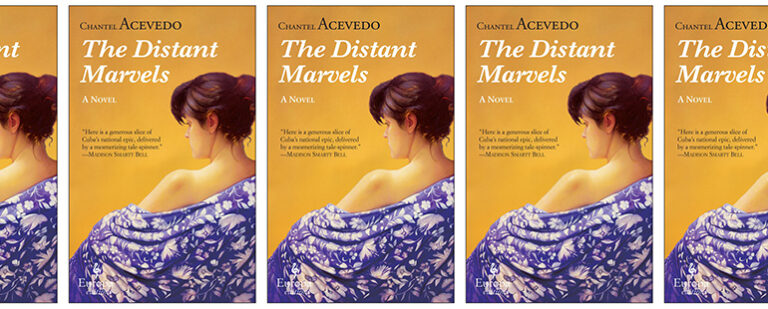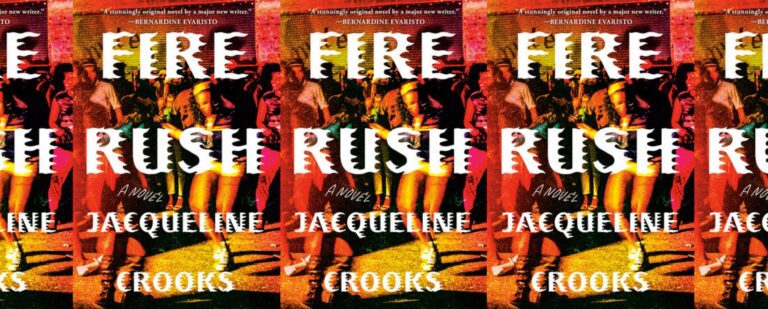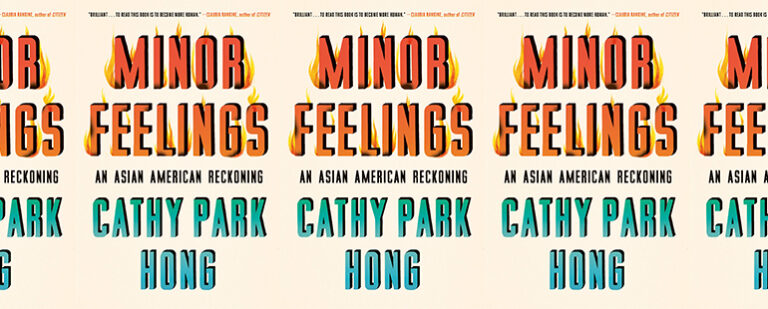First Drafts: Poetry
A Conversation With Traci Brimhall, Amy Gerstler, Andrew Hudgins, and Timothy Liu
1. How do your poems come to you?
Traci Brimhall: They rarely come to me. Usually I have to go find them. They’re a bit wily like that and generally prefer midnight over noon and my office floor rather than my desk.
Amy Gerstler: Slowly and murkily. Via dredging of a mucky mind. Collage is a main method with me so I often construct text from bits and pieces. Things people say, misapprehensions, weird persistent memories, odd images, notes taken from varied sources, photos, shreds of songs, newspaper captions, half digested obsessions, menu entries, prayer shards, morsels of archaic dictions, lines from letters etc. can be catalysts or fodder or both. For example, last night I heard a guy say, “They met in glass-blowing class.” A spark of happiness fizzed in my brain as I wrote down the line for later use.
Andrew Hudgins: Sometimes they evolve out of an image I want to explore—something I’ve seen, read, heard, dreamt, or imagined. Sometimes a phrase comes to me and I want to see where it leads. Often, though, I get involved in larger projects—an autobiography; a historical novel in poems; mediations on humor, gardens, the life of Christ in paintings—and those projects generate the next poem. Even if the project peters out, the individual pieces can usually stand alone. Poem leads to poem as way leads to way.
Timothy Liu: It starts with a feeling. Then words attach themselves to it, and the feeling starts to morph, evolve, transform itself. Or a poem could start with words that a feeling then attaches itself to, followed by more words. I can prepare myself for a poem to come to me, just like a memorable dream, but I can’t force it to happen.
2. On any given day, I’ll have a number of ideas in my head; most never make it to the initial drafting phase. How do you know when it’s time to start drafting? In other words, what drives you to the page?
TB: Awareness of my own unpleasantness sometimes gets me to write. I’ll be in a rotten mood and realize it’s been awhile since I’ve written anything, then go write. Other times I’ve exchanged poems with friends via email while we try to write seven poems in seven days. I often don’t want to sit down to write on those days, but it’s a push for quantity, not quality, and by the end of it, I can look back and realize there actually were some good lines in some poems and some potential in others.
AG: I start lots of things that go nowhere, but for me it’s important to try to firmly plunk myself in the chair and work as often as possible, whenever there’s time, and not to worry so much initially about whether it’s a fabulous idea I’m fiddling with or whether it’s going to pan out (whatever that means). Writing helps me think, I’m pretty lost without it, so I try to push myself to take a stab at any notion, dream curd or phrase that persists in my head and the only way I can figure out if I think it has potential is via actually working on it. At this point in my life I have tons of notes and quotes and books to draw from, an avalanche of starting points and/or lines and phrases and titles. I also keep a few post-its stuck to the desk top with lists of poems I want to try to write, so sometimes I sit down and take a crack at one of those “concepts.”
AH: What drives me to the page is that that’s what I do after I’ve eaten breakfast, glanced at the paper, and given the dogs their mile. Sometimes I collect notes for weeks, months, or years, waiting for an idea to coalesce into shape. Sometimes I have to jump in and impose shape. Whatever’s most alive in my imagination is what I work on. When there’s nothing sparking, I read and wait for something to get an electrical charge. But usually there’s work to be done and I want to get at it.
TL: Writing a poem is like going on a date: you don’t know what’s going to happen beforehand. But you can try to be present, awake, curious about where things are going to lead. You can try to be aware of where the energy is, when it rallies and when it starts to flag. What drives anyone to go on a date? The jackpot.
3. Where/how do you draft?
TB: I tend to be a journal person. For awhile now, I’ve been a collector of chaos. In truth, hardly a day goes by when I don’t write something. Maybe it’s an image. Maybe a word. Maybe a bit of scansion I’d like to find words for someday. So when I go back to draft, there’s an assortment of music and images and strange words just lying there waiting to be used. I also tend to write on the floor, crossed legged, bent over. It’s not comfortable, but the lines usually come.
AG: I love the computer and living during the age of the internet. If someone would just allow me to live in a library, that would complete my happiness (though my spacious rooms on the top floor would have to include ample dog accommodations). I have a small office in my house containing books and a laptop, and that’s where I write. Sometimes I take the laptop and go to the library if it’s unusually noisy at home. Sometimes I write with earphones on listening to not terribly loud recordings of rainstorms. That blocks out noise and distractions, and the sound is somehow both soothing and enlivening. So I work on the computer, and every few drafts I print out and correct by hand. Then I input the corrections and try to forge on.
AH: When I first started as a serious writer, I was obsessive about legal pads, number three lead pencils, and German-made aluminum pencil sharpeners with replaceable blades. I thought I’d always write that way. But now I work exclusively on the computer and almost never print anything out till I give it to my wife to critique. The computer has on it my dictionaries, my link to the OED, a rhyming dictionary, and a phonetics finder that I can use when I’m looking for particular sounds. Because I’m now so dependent on the computer, I work where it is—and that’s a room at the back of the house looking out into the backyard. Because I’m phobic about noise, I invested in double-paned windows and keep an air filter running year round. The white noise from the filter’s fan drowns out barking dogs, lawn mowers, garbage trucks, and neighbors’ stereos. I wish I were one of those people who can write in coffee houses and edit on public transit, but I’m not.
TL: I draft anywhere or anyplace, though most of my poems get worked on/over at home. But cafes and subways are good places to be when inspiration hits. I like reading poems into my Voice Memos app or typing them into the Notes app on my iPhone when I’m on the go.
4. Are there differences in your drafting process depending on the type of poem you’re writing? How many drafts do you typically take a poem through?
TB: I went through a period of nine months in which I lived in my car, and I would often try to compose in my head. These weren’t always my favorite poems, but they’re in my bones in a way the others aren’t. Sometimes a poem only makes it to the second draft, sometimes it goes through twenty. Sometimes it takes a few days, sometimes it takes years, but I’m happiest when there’s something wild about the poem, something I can’t explain. That can happen in the first draft or the fifteenth, but I don’t feel like my poems have come to life until a mystery animates them.
AG: I think each text has its own demands. Some seem to require a lot of tussling with format. Some appear to need more research and/or different kinds of research than others. Some seem, like cheese or wine, to need to age a bit. Some need to get obese and then go on crash diets and some need to mate with other texts. Etc. I don’t count drafts, so my rather lame response to the last part of your question is “a bunch.”
AH: When I was writing on legal pads, I’d typically do about twenty drafts. By then the poem looked done to me. That was always a delusion, and I quickly recognized it was a delusion. I’d put the poem aside and come back to it later and give it another ten or twenty. Then another ten or twenty. And maybe another ten or twenty after that. Now though, with the poem or essay on the computer, it’s almost impossible to know what a draft is. When you can count discarded pages of yellow legal paper at the end of the day, it’s easy to know what you’ve done. But I’d imagine I revise about the same amount, but without the finger callouses and back pain from leaning over the desk.
TL: Most of my poems go through 50-100 drafts. I never write the same poem twice, so the processes vary and evolve. To expand on a previous metaphor, a poem is like a person you take out on 50-100 dates to see what you finally have between you.
5. Let’s talk titles for a moment. Sometimes I have a title in mind when I begin; other times, I don’t have a title even after the piece is finished, and I have to go hunting. At what stage of the drafting process do you typically choose the poem’s title?
TB: I’ve picked out fetal names rather than baby names in case I ever have kids. I have a similar set up with poems. I want to be able to call it something while it’s still brewing, so the folders that hold drafts often have different titles than the final poems. It makes hunting down the right poem a bit of a guessing game at times.
AG: For me, titles seem to come at different times while I’m working on a piece—sometimes initially, sometimes much later. I might change a title multiple times along the way. Working on a computer means that if you don’t title your files, the computer will do it for you, using the first 4 or 5 words of the text. This can be interesting. There have been occasions when I’ve gratefully taken the computer’s suggestions.
AH: I almost never think about a title till the poem is done and over with, and then I just slap a title on it. With books, the title tends to present itself when the book is about eighty percent done.
TL: Titles most often come to me after the initial draft of the poem is written. Titles sort of answer the question: so where did you end up? It’s usually unforeseen. But like the poem, I’m happy to revise the title dozens of times, looking for even happier accidents.
6. Do you have a first draft anecdote–a poem that arrived fully-formed, a special place you wrote in, a nightmare story, etc?
TB: Early into writing my latest book, Our Lady of the Ruins, I went to Peru to hike the Inca trail to Machu Picchu. Before I even left the hostel for the four-day hike, I lost the notebook that had all my drafts and notes. It was pretty devastating at the time, but one of my friends said that perhaps Our Lady required a sacrifice. I would have preferred to sacrifice some chocolate cake to my mouth, but the gods you invent make their own rules.
AG: This isn’t a first draft anecdote but someone once gave me a T-shirt they’d found in a thrift store that had CHRISTIE’S ALPINE INN written across the front of it in large white letters. I ended up using that phrase for a chapbook title. So I was elated to know that even thrift shopping can be a literary experience.
AH: Once a poem came to me in its eight-line entirety when I was jogging. I loved it for its ease and the strangeness of its arrival, even though I later ash-canned it. Once I woke from a dream chanting the word Sassionach as if the repetition would save my life. I guess it’s a phonetic equivalent of Sassenach, which the OED says is a name the “Gaelic inhabitants of Great Britain and Ireland” call “their ‘Saxon’ or English neighbors.” I was sure I’d never seen or heard the word before, but I must have, since the OED first citation is from Smollett’s Humphry Clinker. The power and mystery of the word on my lips was so intense that I was intrigued while also a bit frightened by the implications of tribal or ethnic insularity, but it came to nothing. Or has come to nothing so far. Another time I’d been reading and rereading Yeats’ “The Wild Swans at Coole” over several days when I woke up one morning and heard on NPR that Gwendolyn Brooks was dead. I sat down and within an hour wrote a condensed version of Yeats’ poem in the form of Brooks’ “We Real Cool.” I thought it was funny and cast both poems in a different enough light to be a critique of each. The poem was picked up by a textbook and printed next to Brooks’ poem. One of the study questions asked the students if the poem was making a point or just being silly. I wanted to answer, “Both.”


